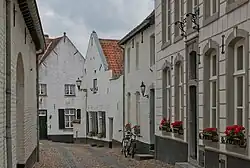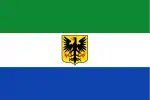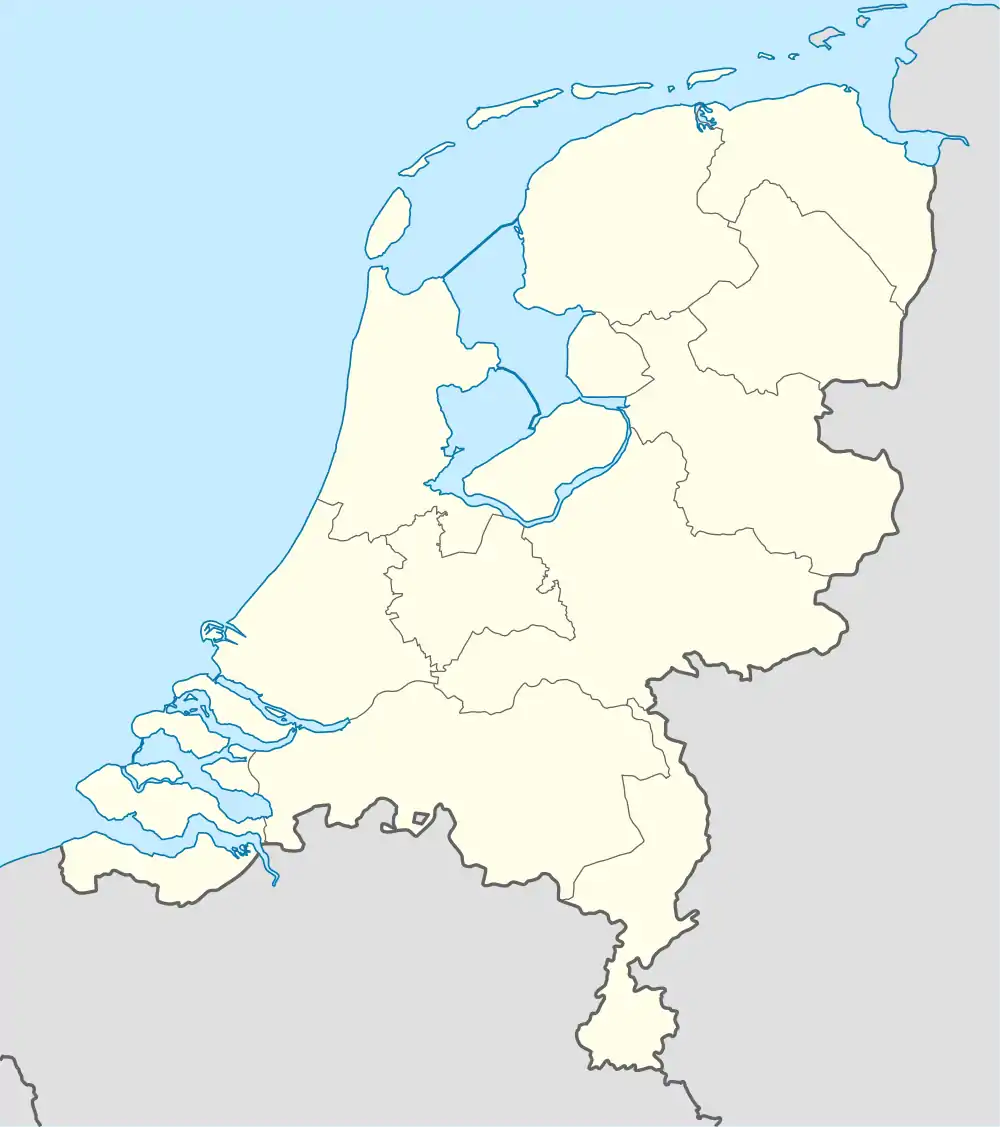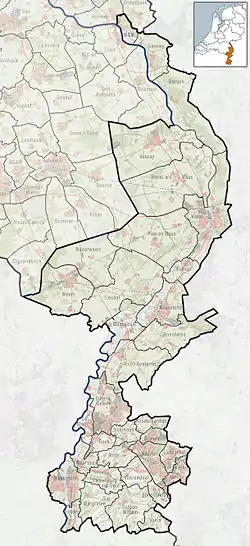Thorn, Netherlands
Thorn (Dutch: [tɔr(ə)n] ⓘ; Limburgish: Toear or Thoear) is a village in the municipality of Maasgouw, in the Dutch province of Limburg. It lies on the rivers Meuse and Witbeek. It is known as 'the white village' for its white-washed brick houses in the centre of town. It used to be part of the Imperial Abbey of Thorn.
Thorn | |
|---|---|
Village | |
 The Daalstraat (daalstreet) in Thorn | |
 Flag  Coat of arms | |
 Thorn Location in the Netherlands  Thorn Location in the province of Limburg in the Netherlands | |
| Coordinates: 51°10′N 5°50′E | |
| Country | Netherlands |
| Province | Limburg |
| Municipality | Maasgouw |
| Area | |
| • Total | 6.69 km2 (2.58 sq mi) |
| Elevation | 24 m (79 ft) |
| Population (2021)[1] | |
| • Total | 2,490 |
| • Density | 370/km2 (960/sq mi) |
| Time zone | UTC+1 (CET) |
| • Summer (DST) | UTC+2 (CEST) |
| Postal code | 6017[1] |
| Dialing code | 0475 |
History
First, the region of Thorn was a swamp nearby the Roman road between Maastricht and Nijmegen. But the region had been drained and about 975, Bishop Ansfried of Utrecht founded a Benedictine nunnery. This monastery developed since the 12th century into a secular stift or convent. The principal of the stift was the abbess. She was assisted by a chapter of at most twenty ladies of the highest nobility.
Previously the abbess and the chapter were endowed with religious tasks but, since the 12th century, they served secular matters and formed the government of a truly sovereign miniature principality, the smallest independent state in the German Holy Roman Empire, approximately 250 x 250 metres. Besides Thorn, Ittervoort, Grathem, Baexem, Stramproy, Ell, Haler and Molenbeersel belonged to this principality. After the French invasion in the winter of 1794–95 and the formal abolition in 1797 made an end to the existence of the abbey and the principality of Thorn; Thorn was first part of the department of Meuse-Inférieure, and after the Vienna Congress it became a municipality of the United Kingdom of the Netherlands.
Gallery
 The abbey church of Thorn
The abbey church of Thorn Street view of Thorn
Street view of Thorn.JPG.webp) Brigade Piron Bridge
Brigade Piron Bridge.jpg.webp) Chapel
Chapel
See also
References
- "Kerncijfers wijken en buurten 2021". Central Bureau of Statistics. Retrieved 25 April 2022.
- "Postcodetool for 6017AA". Actueel Hoogtebestand Nederland (in Dutch). Het Waterschapshuis. Retrieved 25 April 2022.